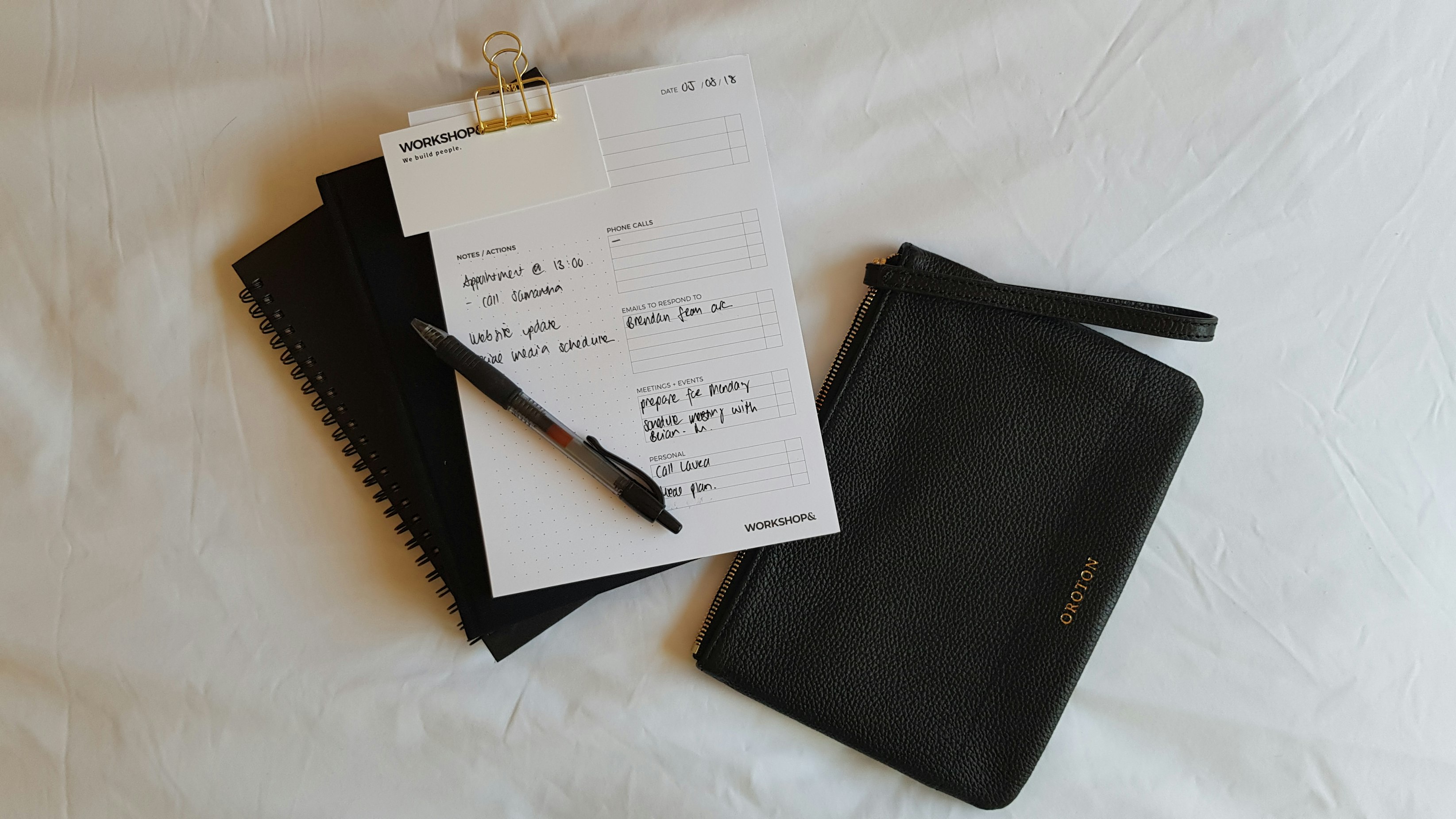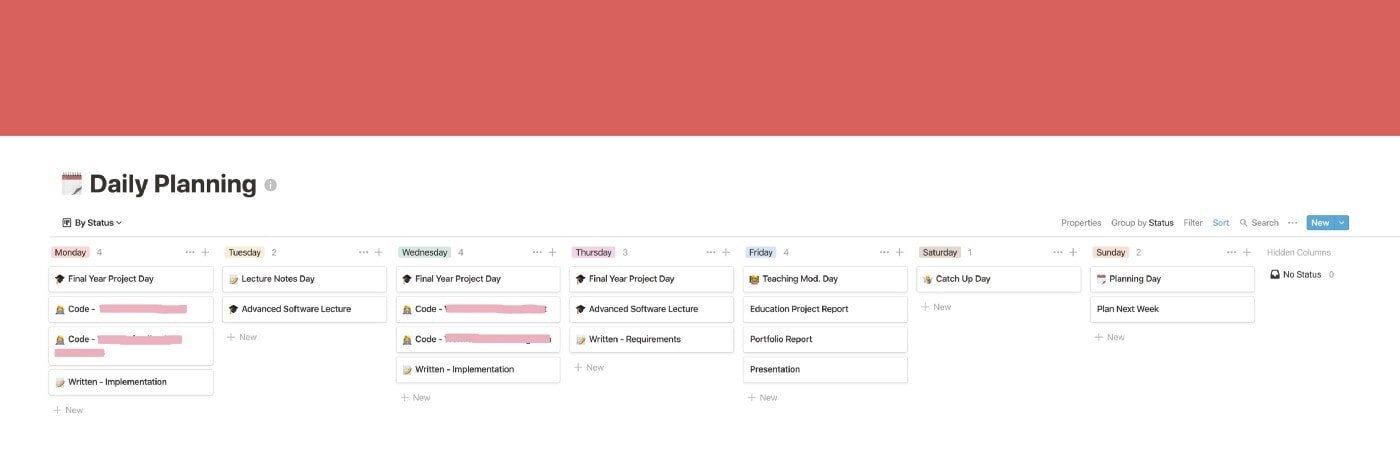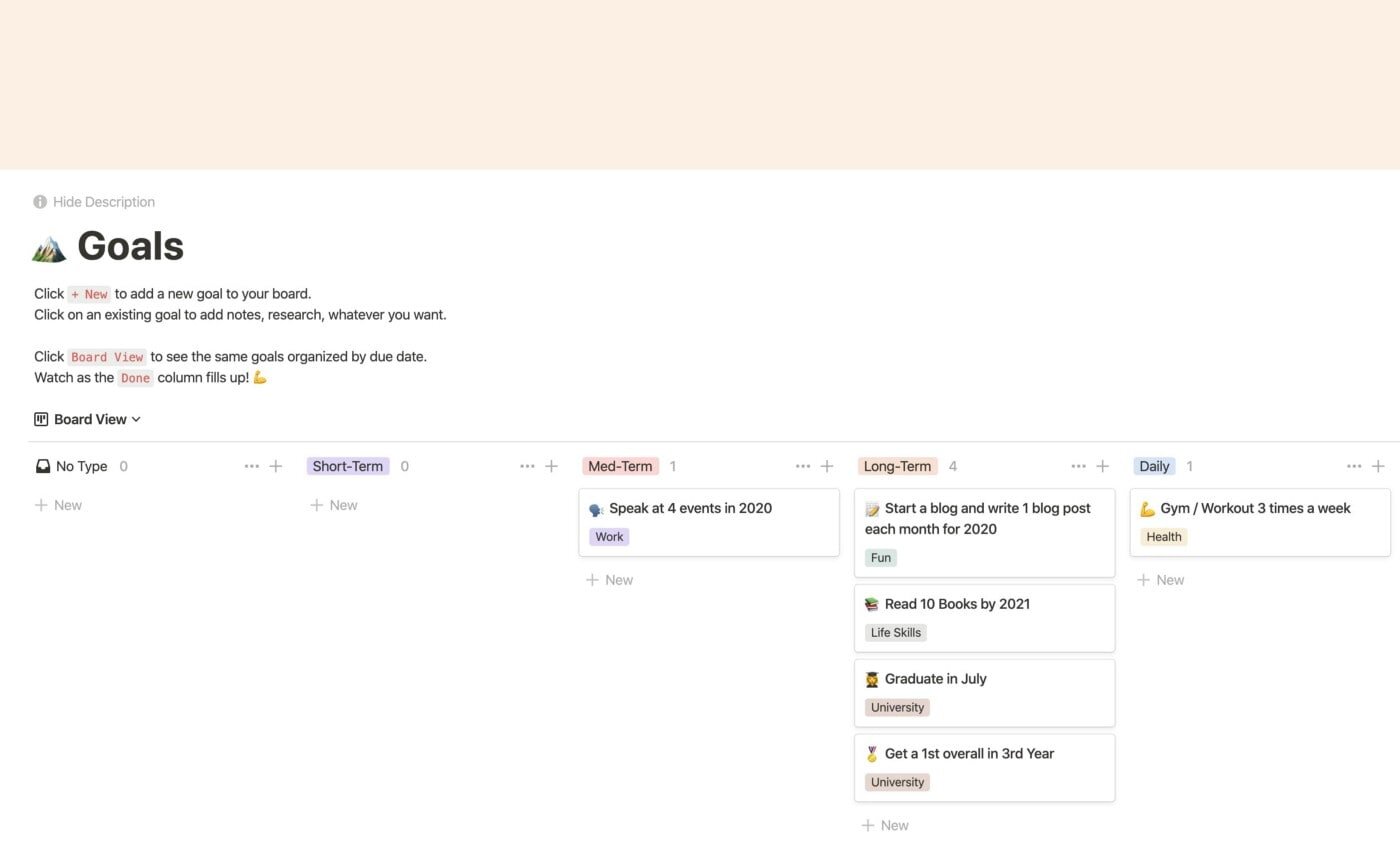How I Use Notion To Organise My Life
Taking notes to a whole new level.
Mar 28, 2020 Photo by Workshop& on Unsplash
Photo by Workshop& on Unsplash
Throughout my time at university, I was always on the hunt for the ultimate organisational app. An app that would allow me to organise every aspect of my life from one place, to boost my productivity, and also help me keep track of all the miss-matched thoughts in my head. For years I used a combination of Google Calendar, random pieces of paper, and the notes app on my phone. I attempted Evernote, but I couldn’t get on with the layout / organisation. Then, someone recommended that I try Notion. It has an easy to navigate desktop and mobile app, simple and minimal layout, and everything has a lot of customisability (also, it’s free).
I have been using Notion for a few months now and have raved about it on twitter a couple of times, so I thought I would give some insight into how I’ve been using it to organise my life.
Daily Tasks
The main reason I have stuck with Notion is because of the significant boost in productivity it has given me, as well as a new-found ability to plan and prioritise effectively. I find that I feel the most overwhelmed when I have a lot of things all going on all at once. It’s hard to keep track when everything feels a bit out of control, and the best thing for me to do to combat that is to plan it out. Blocking out days of the week for a specific ‘theme’ of tasks and designating time for different commitments has proven to be a well-rounded way to organise my life.

By doing this, I can visualise my to do list, and spread it out across the week, and give myself days to focus on specific tasks. This really helped me out when I was juggling dissertation, coursework, placement and job applications.
Dissertation Organisation
For my university tasks, specifically my dissertation, I like to have Kanban boards for overall project management, keep track of my references and literature for the literature review, and have a general notes page to store any ideas or things I need to remember.
For these, I’ve found that Notion has a great selection of templates to use to create any kind of “note” you could think of. AND If you’ve already using tools like Trello and don’t want to have to manually migrate your boards, you can import them directly into Notion!
Goals Tracking
At the beginning of the year, I decided I wanted to properly set some goals for myself in the new year, and to keep myself accountable, I created a goal tracker on Notion. I re-worded my goals to be more “SMART” and now I can keep myself motivated and remind myself of the progress I am making. I wanted to include smaller goals, as well as bigger things I want to achieve so that I can celebrate the little wins too and keep the motivation flowing!

Blog Post Planning
When I first configured my Notion workspace, I noticed there was a template for blog posts. I also realised I could plan and organise monthly blog posts quite effectively. This gave me the motivation to come up with some initial ideas and to set a goal for 2020 of writing one blog post every month — to prove to myself I could keep it up and write consistently.
So far, it’s really working! I can use the blog post template to get the layout right. When I work on my posts, the updates sync across all my devices and I feel that because all the ground-work is already there, it’s easier for me to come up with things I want to write about and turn them into a reality.
Other Life Organisation Tricks
One of the great things about Notion is its versatility, because it’s not just a note taking app! Aside from all these productivity tasks, I also use Notion to track job applications, calculate grade weightings for coursework, and even note down shopping lists and recipes.
I hope this helps anyone looking to get more organised or find a new note taking app to evolve your organisational skills!